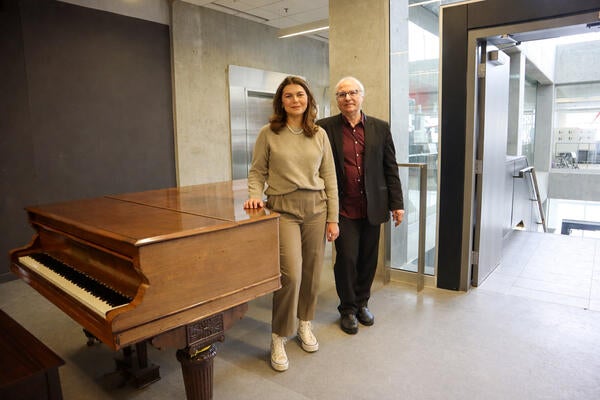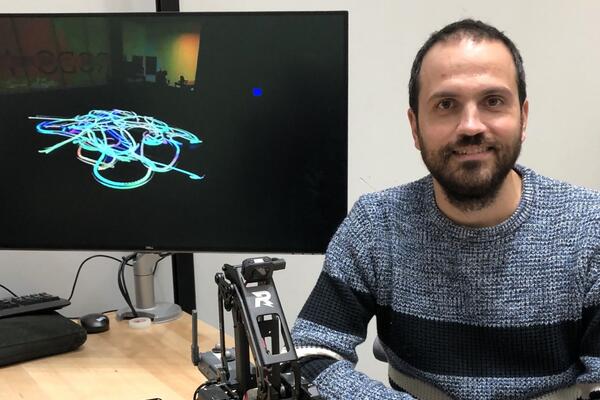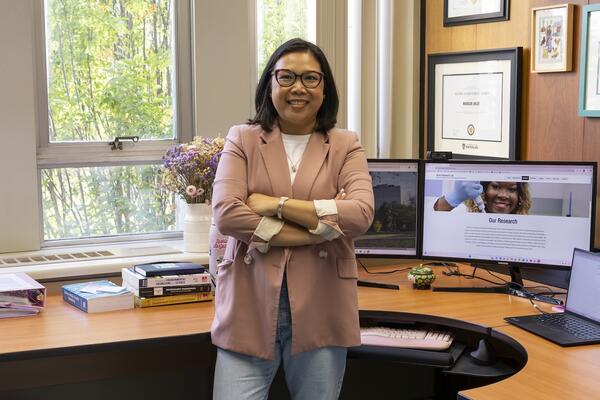
Tackling mental health with tech
Engineering alumnus discusses the use of mobile apps to help young people during COVID-19

Engineering alumnus discusses the use of mobile apps to help young people during COVID-19
By Brian Caldwell Faculty of EngineeringWork by a Waterloo Engineering alumnus to tackle mental health issues using digital technology was highlighted this week as part of a national initiative to help prepare Canadian youth for the future.
Yuri Quintana, who earned all three of his engineering degrees at Waterloo, is a professor at Harvard Medical School and chief of clinical informatics at one of its teaching hospitals.

Yuri Quintana is a professor and clinical informatics expert at Harvard Medical School.
He is now working with organizations in Canada to evaluate mobile mental health applications for youths and develop an app to help them deal with anxiety related to the COVID-19 pandemic.
Funding for part of his research is provided by the RBC Foundation, which featured Quintana in a 35-minute podcast exploring the dangers and potential mental health benefits of technology as COVID dramatically increases screen time for young people.
“When properly applied, (technology) can certainly provide more access to services, to knowledge and support services,” he says. “We’re trying to help individuals as well as organizations use that technology in the best way possible.
“Technology can enable us to remain connected with our friends, with our healthcare providers, but it’s also true that spending too much time connected to technology doesn’t allow you individual time to de-connect and decompress.”
Quintana is the son of Waterloo Engineering professor emeritus Victor Quintana and Mone Quintana, who worked at the University of Waterloo arts library. He is married to Brenda, also a University alumnus, and the father of current computer engineering student Nicolas.
He is a global ambassador for the University and launched a Boston-area group to bring engineering alumni together and mentor co-op students.
After earning a PhD in systems design engineering in 1995, Quintana began his career developing internet search engines before circumstance led him into a series of increasingly responsible positions in the healthcare field.

University of Waterloo researchers Olga Ibragimova (left) and Dr. Chrystopher Nehaniv found that symmetry is the key to composing great melodies. (Amanda Brown/University of Waterloo)
Read more
University of Waterloo researchers uncover the hidden mathematical equations in musical melodies

Read more
Robots the size of a soccer ball create new visual art by trailing light that represents the “emotional essence” of music

Read more
Waterloo prof leads a team of researchers to improve water quality through a community-focused approach underpinned by technical excellence
The University of Waterloo acknowledges that much of our work takes place on the traditional territory of the Neutral, Anishinaabeg, and Haudenosaunee peoples. Our main campus is situated on the Haldimand Tract, the land granted to the Six Nations that includes six miles on each side of the Grand River. Our active work toward reconciliation takes place across our campuses through research, learning, teaching, and community building, and is co-ordinated within the Office of Indigenous Relations.